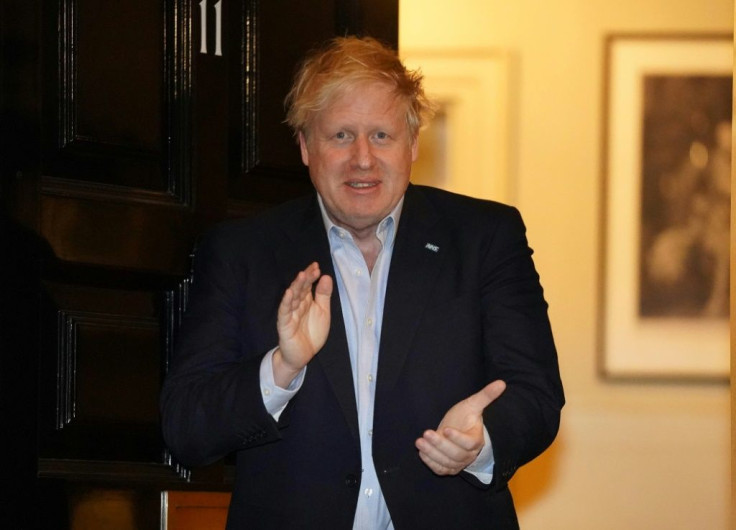Coronavirus Update: Boris Johnson Hospitalized For 'Persistent Symptoms' Of COVID-19

KEY POINTS
- British Prime Minister Boris Johnson has been hospitalized for "persistent symptoms" of COVID-19
- A statement noted this is "a precautionary step"
- Johnson tested positive for COVID-19 two weeks ago
Already in self-quarantine since March 17 after testing positive for COVID-19, British prime minister Boris Johnson saw his coronavirus symptoms persist enough over the weekend for his personal physician to recommend his immediate hospitalization. He had hoped to exit quarantine last Friday.
Number 10 Downing Street, the PM's official residence, claims Johnson's hospital visit is precautionary even as it seeks to squelch rumors Johnson is in grave condition.
Johnson, 55, was admitted to an unnamed London hospital Sunday evening after days of persistent symptoms. Johnson's pregnant girlfriend, Carrie Symonds, on Saturday said she's been in bed for a week at the prime minister's flat at No. 11 Downing Street displaying the key symptoms of a COVID-19 infection.
"On the advice of his doctor, the prime minister has tonight been admitted to hospital for tests," said a statement from Downing Street. "This is a precautionary step, as the prime minister continues to have persistent symptoms of coronavirus 10 days after testing positive for the virus.”
NEW: The Prime Minister is in hospital pic.twitter.com/t0cjuC5M5T
— Chris Mason (@ChrisMasonBBC) April 5, 2020
Downing Street noted the hospital confinement isn't an emergency admission. It also said Johnson will remain in charge of government, and remain in constant communication with colleagues and civil servants.
Dominic Raab, the foreign secretary and first secretary of state, will take charge of government should Johnson's condition deteriorate and render him incapable of fulfilling the duties of prime minister. He will lead the Cabinet's weekly pandemic meeting on Monday.
The Guardian claims Johnson is more seriously ill than either he or his officials want to admit. Downing Street at the time asserted there were no plans at that point for Johnson to be admitted to hospital.
Johnson's doctors are increasingly concerned about the prime minister's labored breathing. Other doctors consulted by British media said the tests to be given Johnson will likely focus on assessing how the prime minister’s lungs, heart and other organs are responding to the virus.
“Doctors will be monitoring important vital signs such as oxygen saturations,” Dr. Rupert Beale, who heads the cell biology of infection laboratory at the Francis Crick Institute in London, told The Guardian.
“They will also check blood tests to see what the immune response to the virus looks like, and to assess liver and kidney function. They will perform an electrocardiogram to check the heart. More sophisticated tests may include a CT scan of the chest to get an accurate picture of the lungs.”
An extraordinary message from Queen Elizabeth II Sunday calling on the British public to keep calm amid the COVID-19 crisis and delivered only a few hours before Johnson's hospitalization added fuel to speculation all's not well with the prime minister.
“I am speaking to you at what I know is an increasingly challenging time,” said the queen. “A disruption that has brought grief to some, financial difficulties to many, and enormous changes to the daily lives of us all.”
“Today, once again, many will feel a painful sense of separation from their loved ones, But now, as then, we know, deep down, that it is the right thing to do.”
As of Sunday, the U.K. reported 47,806 confirmed COVID-19 cases. It also reported 5,914 new cases and 4,934 deaths.
© Copyright IBTimes 2024. All rights reserved.




















